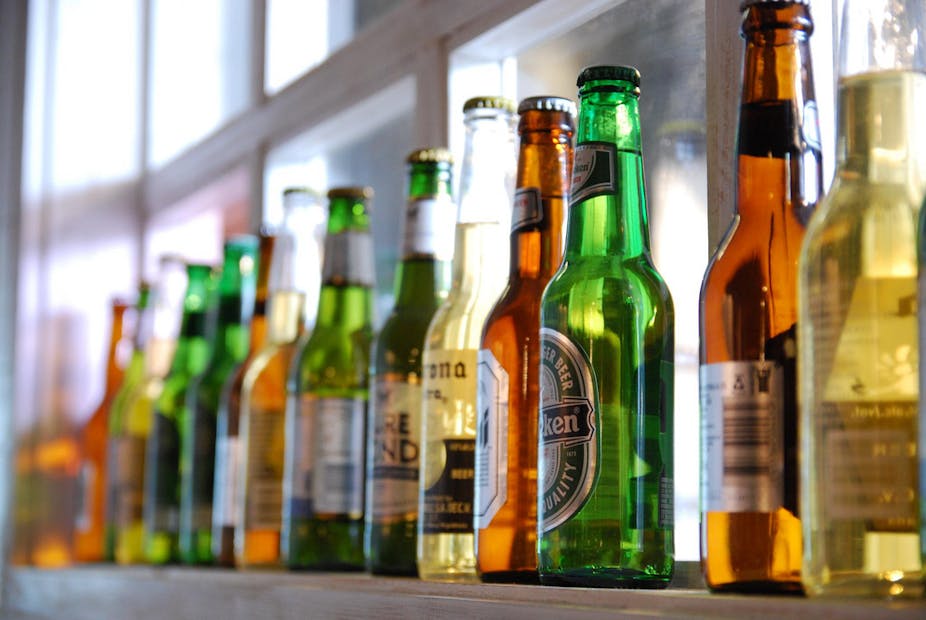The alcohol industry’s move to attach warning labels to booze bottles will have limited impact because the messages selected are so weak they “sound like a greeting card”, an expert on alcohol-related harm has said.
However, the industry-funded organisation, DrinkWise Australia, that developed the labels said pairing the messages with an education campaign will boost the scheme’s effectiveness.
The labels, developed in conjunction with the liquor industry, will be attached to 80% of the alcoholic drinks sold in Australia and hit the shelves today.
The labels carry a link to the DrinkWise website and one of three interchangeable warnings: “Is your drinking harming yourself or others?‘”, “Kids and alcohol don’t mix” and “It is safest not to drink while pregnant”.
Professor Sandra Jones, Director of the Centre for Health Initiatives at the University of Wollongong and the author of several studies on alcohol advertising and labelling, said the warnings were a good idea but the selected messages were too soft.
“The labels that have been put forward are more like greeting cards,” she said, “‘Drinking and kids don’t mix’ doesn’t tell us anything. It’s certainly not a warning label.”
“Saying 'Is your drinking harming others?’ – well, if I thought my drinking was a problem, I would have already done something about it.”
More specific, fact-based information such as ‘Drinking alcohol when you are a teenager damages brain development’ or ‘Children who drink alcohol are more likely to become alcoholics as adults’ would have been more effective, she said.
“That sort of information, rather than what sounds like a fortune cookie, would have been more helpful.”
The alcohol industry was responding to growing concern about alcohol-related harm but tougher government measures – such as higher booze prices and further regulation of alcohol advertising – were needed, said Professor Jones.
“Industry has jumped in and said ‘Let’s put these labels on that won’t work and the government will back off and leave us alone’,” she said.
DrinkWise Australia spokeswoman, Trish Worth, said other academic experts such as Professor Ian Hickie, director of Sydney University’s Brain and Mind Research Institute, had supported their campaign.
“The three messages selected are around very important public health themes,” she said, adding that the labels will direct people to the DrinkWise website, where they can learn more about alcohol-related harm.
“In fact, this is a world first. In other countries that do have labels, there is no education campaign that runs with it,” she said.
“There will be brochures available in retail outlets that will have a bit more information.”
“While all the governments around Australia are trying to get something done, the industry has been able to achieve it. I am pleased with what’s been done and it’s up to the government if they wish to do more.”
Dr Gwendolyn Gray, an expert on health and welfare policies from the Australian National University, said she thought the messages were “pretty good.”
“There are many women out there who still don’t know that there is quite a risk involved in drinking while pregnant,” she said.
“I think it’s useful to be reminded, even if one knows.”
However, labelling should be paired with higher taxes on alcoholic lolly drinks that attract teenagers and a well-funded network of community health centres to get more information out to people on drinking risks.
“Putting labels on packages is a cheapskate way of providing the right kind of preventive health measures that the country needs.”

